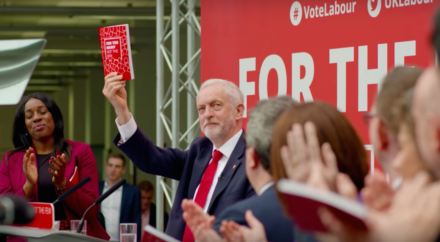
No one wants the Labour Party to split. Yet for an increasing number of people, it seems to be inevitable. The party has had a summer of anguish over antisemitism, or “weaponised smears” depending on your viewpoint. It has suffered a week of no confidence votes in MPs, seen Jon Lansman’s statement that Tony Blair should never have been in the Labour Party, and held a public falling out over the term “call off the dogs”. As conference approaches, division and hostilities abound.
Online discourse is toxic, Party meetings are confrontational and aggressive, and Facebook forums fill with fury and invective. Whilst for some the last 30 years of Labour history are something to be proud of, for others anything pre-2016 is at best suspect and at worst a “neoliberal” usurpation of what Labour should be. The latest national executive committee (NEC) elections show no sign of the Corbyn revolution going into reverse. Corbynites see their leader undermined at every turn by those who don’t support him. For the moment, the broad church is in ruins.
“Moderates” are told they are not welcome, but that leaving would be a traitorous act enabling a Tory win. Some have resigned over antisemitism. Others have been told that to stay makes them complicit in institutional racism, or that leaving does nothing to counter the problem. Caught between a rock and a hard place, many longstanding members are in a pit of despair.
A slew of articles during the parliamentary recess speculated on the creation of a new “centrist” party based on the likelihood a number of Labour MPs resigning the whip after no confidence motions or the threat of outright deselection. If the party can’t stay together, is a more amicable split possible? One that might at least limit the damage, and even leave the way open for eventual reconciliation and reunification?
Perhaps some kind of agreed, managed separation could be brokered by the TUC or another trusted body. One where MPs and members could choose, without sanction, where their membership sat, where assets were then divided in proportion, and where the Electoral Commission adjudicated on what happens to the party name. It seems unlikely, but let’s play the scenario out.
A “moderate”, non-Corbyn party would, even if it took only a fifth of members, be larger than the Conservatives, particularly if another ten thousand or more former members re-joined. Those members would no longer be campaigning for Corbyn, nor feel they were associated with antisemitism and sympathy with regimes like Iran and Syria, but they would also not be cut off from Labour’s history and heritage if both parties could legitimately lay some claim to it.
The two parties could negotiate some kind of electoral arrangement to at least in part overcome the enormous obstacle of our electoral system. The moderate party, far from handing the next election to the Tories, could well take enough votes from the Conservatives to deny them power again. With broad agreement on the aims of social and domestic policy, the moderate and Corbynite parties would be natural coalition partners. Instead of internal battles, disagreement on the means would be resolved through compromise and negotiation.
Labour would no longer be arguing amongst itself in a vicious civil war, but focusing on policy and opposition to the Tory government. The electorate could make their choice between the full-blooded socialist project under Corbyn, or an alternative more like the Labour they voted for in the past. The moderate party would without doubt have to be more than “not Corbyn” or a return to the ’90s. The Corbyn-led party would have to prove its various factions could co-exist without the unifying force of the “Blairites” within. With both sides having realities to face up to, each would ultimately be in a better place to contest elections, with only themselves to blame or credit for their showing.
This ideal of a managed separation is undoubtedly fraught with difficulties and obstacles, alongside certain opposition from people across the spectrum in the Party. It ought to at least merit consideration.
The alternatives are an acrimonious split that wrecks any prospect of the two sides working together in the future, or an ongoing civil war that sees the party narrow its political appeal further. Everything will then depend on Corbyn’s Labour securing more support than it did last year, having alienated or forced out a significant number of its own MPs, members and supporters.
There is no hiding Labour’s divisions, or pretending they don’t exist. Surely it is better now to let the different sides go their own way, and let voters decide what kind of Labour Party they want.
Warren Morgan is former Leader of Brighton and Hove City Council.




More from LabourList
Ashley Dalton resigns as health minister for cancer treatment
Paul Nowak column: ‘Labour must focus on the basics’
‘Labour’s two-child cap victory rings hollow while asylum-seeking children remain in poverty’